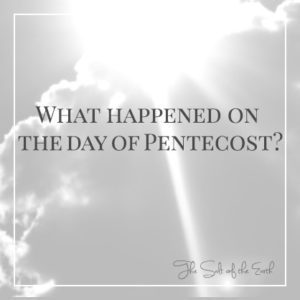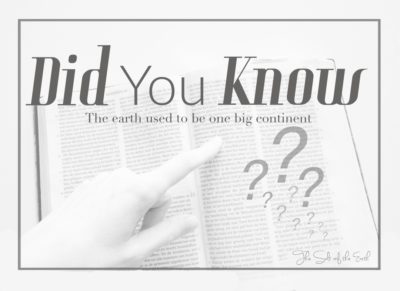Èske w te konnen sa 50 jou apre fèt Pak la, Bondye te bay lalwa li a (Tora a) atravè Moyiz bay pèp li a? Lè w bay lalwa ak kòmandman l yo, God made His will known to His carnal people. But did you also know that 50 days after the crucifixion of Jesus Christ, God gave His commandments through the outpouring of the Holy Spirit to the new creation? That’s what we celebrate 50 days after easter.
What is Shavuot; the feast of weeks?
During the feast of weeks, the people of Israel recall and celebrate that God gave the Torah, kòmandman l yo, to them. God had redeemed His people from slavery and made His will known to them by giving His commandments. This feast is also called ‘Hag Matan Torateinu’, which means the feast of the giving of the Torah.
Sak pase 50 Jou apre fèt Pak la?
And ye shall count unto you from the morrow after the sabbath, from the day that ye brought the sheaf of the wave offering; seven sabbaths shall be complete: Even unto the morrow after the seventh sabbath shall ye number fifty days; and ye shall offer a new meat offering unto the Lord (Leviticus 23:15-16)
The feast of weeks is celebrated 50 Jou apre fèt Pak la. From the second day of Passover until the day before Shavuot, the feast of weeks is celebrated and 49 days (7 weeks) are counted.
Seven weeks shalt thou number unto thee: begin to number the seven weeks from such time as thou beginnest to put the sickle to the corn. And thou shalt keep the feast of weeks unto the Lord thy God with a tribute of a freewill offering of thine hand, which thou shalt give unto the Lord thy God, according as the Lord thy God hath blessed thee (Deuteronomy 16:9-10)
50 Jou apre fèt Pak la, the Lord God descended on Mount Sinai in a fire and answered Moses by a voice.
On that day, the Lord God made a covenant with His people.
Moses brought forth the people out of the camp to meet with God; and they stood at the nether part of the mount. And mount Sinai was altogether on a smoke, because the Lord descended upon it in fire: and the smoke thereof ascended as the smoke of a furnace, and the whole mount quaked greatly And when the voice of the trumpet sounded long, and waxed louder and louder, Moses spake, and God answered him by a voice And the Lord came down upon mount Sinai, on the top of the mount: and the Lord called Moses up to the top of the mount; and Moses went up (Exodus 19:17-20)
The feast of weeks is later called Pentecost. Because Pentecost means ’50’ in the Greek language.
The Day of Pentecost, 50 days after the crucifixion of Jesus Christ
50 Days after the crucifixion of Jesus Christ (a day before Passover), God gave His Holy Spirit. At that moment the new creations; the sons of God (sa a aplike a tou de gason ak fi) were born. The commandments of God were now written upon the hearts of the new creation (nonm nan nouvo) and not on tables of stone ankò.
The Lord God prophesied about this in the Old Testament:
Behold, the days come, Seyè a di, that I will make a new covenant with the house of Israel, and with the house of Judah: Not according to the covenant that I made with their fathers in the day that I took them by the hand to bring them out of the land of Egypt; which My covenant they brake, although I was an husband unto them, Seyè a di: But this shall be the covenant that I will make with the house of Israel; After those days, Seyè a di, I will put my law in their inward parts, and write it in their hearts; and will be their God, and they shall be My people.
And they shall teach no more every man his neighbour, and every man his brother, saying, Know the Lord: for they shall all know me, from the least of them unto the greatest of them, Seyè a di: for I will forgive their iniquity, and I will remember their sin no more (Jeremiah 31:31-34)
God’s commandments that represent His will, shall not change
Kòmandman Bondye yo, which represent God’s will and God’s nature, shall be forever and shall abide in the hearts of His sons. People can change and adjust the Bible and God’s commandments to their will, konklizyon yo, opinyon, lanvi, needs, and desires. Men God’s will shall never change.
Bondye se menm bagay la, Yesterday, Today, and Forevermore. No man can change God’s will and God’s nature and do something about His laws!

Nan Ansyen Testaman an, we read many times that the people of the house of Israel didn’t keep God’s commandments. Olye de sa, God’s people did what they thought was right to do.
They relied on their own carnal knowledge, bon konprann, and understanding. Instead of relying on God’s knowledge, bon konprann, and understanding.
They thought they pleased God, but they were wrong.
God is very clear about His will. You decide to obey His will or not. It’s all up to you.
The Gospel is simple and isn’t hard, but people make the gospel difficult and hard. Poukisa? Because they don’t want to crucify and lay down their flesh (their own will, dezi, antiman, emotions lusts, carnal works, elatriye.).
The law of God abides in the heart of the New Creation
People want to apply the Gospel to the ansyen kreyasyon (the old man), but that doesn’t work. Only when the old creation has died, the new can arise.
Only the new creation, who is created after the image of God and is born of water and Spirit, can comprehend and receive the things of God.
The new creation sees and understands the Kingdom of God. And represents, preaches, and brings the Kingdom of God on earth and fulfills the great commission of Jesus Christ.
The Kingdom of God is a spiritual Kingdom, which can’t be understood by the flesh and the carnal mind.
When you are baptized with the Holy Spirit and receive God’s Holy Spirit, you receive a new nature; God’s nature. Through the Holy Spirit, the Law of God that represents His will and stands forever abides in your heart.
As the new creation, you shall walk by your new nature according to His words and commandments. You shall walk after His will. Because you love God with all your heart, lespri, nanm, ak fòs. By your walk and through your life you shall please Him and exalt Him.
'Fè sèl latè a’



